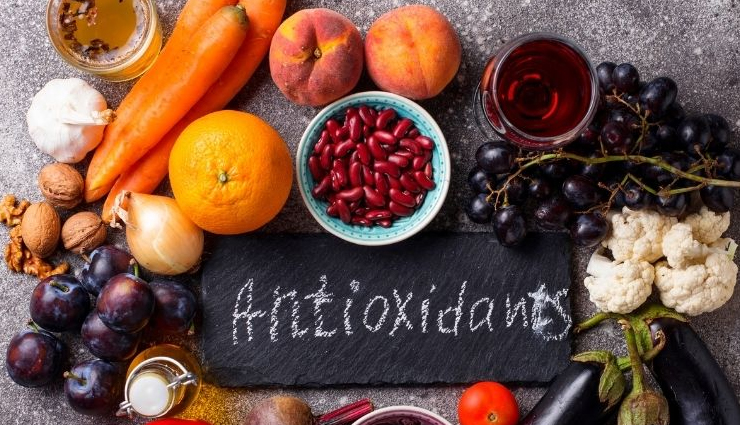- Home›
- Healthy Living›
- 10 Natural Ways To Increase Oxygen Levels
10 Natural Ways To Increase Oxygen Levels
By: Priyanka Maheshwari Thu, 28 Nov 2024 12:42:59

Breathing is a crucial biological function essential for survival and various bodily processes. It occurs involuntarily, without conscious effort or thought. Research shows that a healthy person takes approximately 700 normal breaths per hour, along with about 12 sighs.
Although breathing may seem like a simple activity, it involves complex mechanisms, from extracting oxygen from the air to distributing it throughout the body via the lungs.
However, environmental changes (such as colder weather) or physical activities (like running) can disrupt the breathing process, leading to lower oxygen levels. This, in turn, can affect both mental and physical performance.
There are several natural ways to boost oxygen levels and maintain good health. In this article, we will explore some of these methods. Read on to learn more.

# Exercise
Engaging in regular exercise helps maintain lung health and boosts oxygen levels. Techniques like the Active Cycle of Breathing Technique (ACBT), which includes specific breathing exercises, can help clear mucus or phlegm from the lungs, expand the chest, and promote effective breathing, thus improving oxygen intake. Activities such as walking and swimming also support lung function and enhance blood circulation.

# Drink Plenty of Water
Water is vital for the body, as it contains dissolved oxygen absorbed from aquatic plants and the atmosphere. When consumed, it helps deliver oxygen to body cells and supports optimal oxygen levels. Running water typically holds more oxygen than stagnant water found in ponds or lakes. Caffeinated drinks, like coffee, can cause dehydration and reduce oxygen levels. Experts recommend drinking at least eight glasses of water a day.

# Consume Iron-Rich Foods
Iron is essential for producing hemoglobin, a protein in red blood cells responsible for transporting oxygen throughout the body. Foods rich in iron, such as organ meats, broccoli, seafood, beetroot, green beans, and cabbage, can help increase hemoglobin levels in red blood cells, enhancing the body’s ability to deliver oxygen to cells.
# Avoid Poorly Ventilated Spaces
Areas with limited airflow, such as rooms with small windows or doors, can restrict the movement of fresh air and trap pollutants like dust, cooking odors, moisture, and other contaminants. These factors can decrease oxygen intake and cause respiratory issues. Ensuring proper ventilation in living spaces is essential for improving oxygen absorption by the lungs.

# Keep Indoor Plants
Indoor plants like aloe vera, bamboo palm, and English ivy help purify the air by absorbing carbon dioxide and releasing oxygen. They also metabolize toxic chemicals and absorb heavy metals, improving air quality and supporting respiratory health by providing cleaner, fresher air.

# Train Your Breathing
The American Lung Association notes that the total lung capacity is around six liters, and how much air the lungs can hold varies from person to person. Breathing exercises such as diaphragmatic breathing or pursed-lips breathing can help increase lung capacity, enabling more efficient exchange of oxygen and carbon dioxide, and improving oxygen levels naturally.

# Maintain Good Posture
Proper posture is crucial for maximizing air intake. Ideal postures for better respiration include sitting in a slightly sloped position, standing with hands on a table just below shoulder height, and sleeping on your side with pillows between your legs and your head elevated. Consistently maintaining these positions can also help alleviate shortness of breath.

# Quit Smoking
Smoking significantly increases the risk of respiratory conditions like asthma, bronchitis, and lung cancer, all of which can lower oxygen levels in the bloodstream. Quitting smoking and avoiding tobacco products is essential for preserving oxygen levels and promoting overall health.

# Eat Antioxidant-Rich Foods
While antioxidants may not directly increase blood oxygen levels, they play a vital role in neutralizing free radicals and preventing cellular damage. Consuming antioxidant-rich foods can support normal cell function and improve oxygen absorption by the cells, thereby boosting overall oxygen levels in the body.
# Get Fresh Air
One of the simplest ways to naturally boost oxygen levels is by spending time in fresh air. Open windows, take morning walks, or stay active throughout the day to ensure you’re breathing in fresh, oxygen-rich air.
Related Stories:
# 10 Amazing Health Benefits of Skipping
# 10 Amazing Health Benefits of Eggs
# 10 Amazing Health Benefits of Coriander Seeds
# 10 Least Known Health Benefits of Black Garlic
# 7 Superfoods To Help You Treat Cough During Winters
# Health Benefits of Drinking Cabbage Water
# 7 Major Causes of Tooth Pain in The Morning and Home Remedies To Treat It





